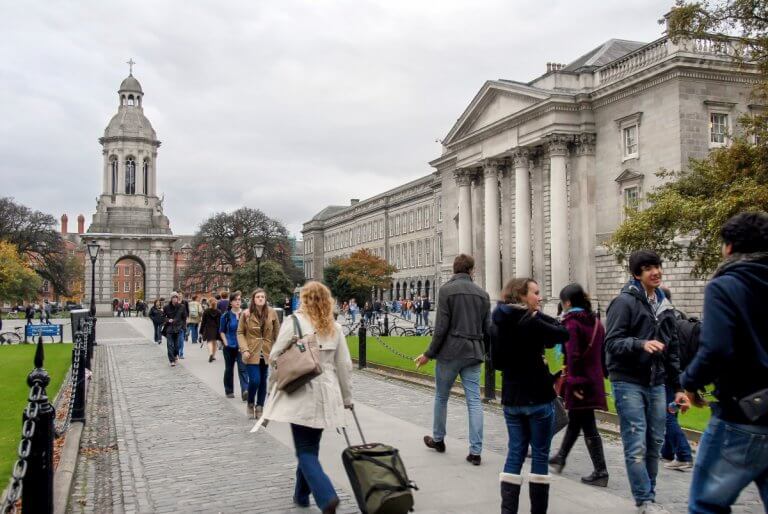
They say history repeats itself, and the student accommodation market is no different. Ireland is currently following in Australia’s housing crisis footsteps, with an influx of luxury accommodation leaving low-income students vulnerable to scams.
In response to the Irish government’s plan to provide 7,000 more student beds by 2019, private accommodation providers have risen to the challenge – while also rising the price tag.
This leaves international students who don’t fit the super-rich stereotype open to exploitation, as they are forced to opt for low-cost options so they have a place to live when they arrive, but these don’t always exist, warns Síona Cahill, President of the Union of Students in Ireland (USI).
“They’re being asked to forward deposits without ever having seen the property so they’re really just working on the trust of the landlord that when they do arrive in Ireland that the property is real,” Cahill told the Irish Times.
“We would have a real concern that there’s quite a number of properties on the market that are fake listings.”
https://twitter.com/NOfNews_Ireland/status/1032157580380893184
An awareness campaign called ‘Scamwatch’ has been launched to bring awareness to the issue, trying to prevent international and Irish students from falling victim to the scams.
Common swindles see landlords show people around properties they live in, asking for the deposit then disappearing with the money, or issuing fake keys that don’t actually give access to the accommodation.
Advice given by the campaign group includes:
-
- Never agree to rent a property without having viewed it properly and make sure you’re happy with the terms and conditions of the letting
- Avoid paying in cash and always ask for a proper receipt
- Never transfer funds via Western Union, Moneybookers or any other Electronic Fund Transfer service to a person claiming to be a landlord or agent without verifying their position
- Be careful if the rent seems like a bargain and check out general rental rates in the area
- Use Google Maps or check the Register of Landlords on the Residential Tenancies Board website to verify that the property exists
- Ensure the keys work and that you have proper contact details for the landlord or agent

Meet with the landlord and discuss the tenancy before signing anything. Source: Shutterstock
With luxury accommodation dominating the market and costing up to EU€410 (US$474) a week, there are concerns that if international students come to Ireland and find their accommodation is not as advertised, they’ll have no choice but to forgo their studies and return home, already having parted with tuition fees and living costs.
“Accommodation is now a barrier to third level education. We’re seeing people making decisions of where they go to college or even if they can go to college based on whether they can afford the accommodation and it’s just not good enough,” said Cahill.
This is almost a mirror image of Australia’s student housing crisis which came to the media’s attention last year. Over 10,000 international students were reportedly left homeless, forced to live in low-cost, unsafe and sometimes illegal accommodation due to a lack of affordable housing options and a rising student population.
This caused some students great distress, affecting their academics, health and wellbeing. One even reported living with dead rats and maggots, unable to afford anything else.
The Australian student accommodation crisis is clearly not an isolated incident, so the question is, what can be done?
Is it the government’s responsibility to correct the market failure in the student accommodation sector? Should universities be admitting only as many students as they can house? Or is this a natural result of growing global desire for the pursuit of higher education?
Liked this? Then you’ll love…
What to do (or not to do) to get your housing deposit back
Is Ireland’s affordable student accommodation strategy failing?







